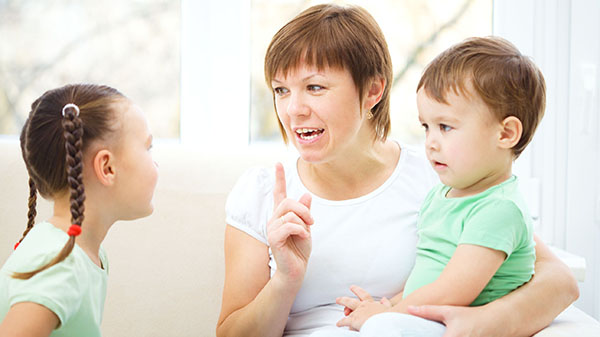Parents of young children are constantly working to make their homes as child-safe as possible.
Look in the baby section of any department store, and you will find baby gates, outlet covers and specially designed locks for cabinet doors, stoves, refrigerators and toilets — all kinds of gadgets designed to keep children out of dangerous areas. Older adults, however, spend most of their time making their homes as convenient as possible.
Look around a senior adult home and you will probably find medicines in easy-to-open pill organizers on the breakfast table, cleaning products within easy reach of the kitchen sink and gardening supplies in a bucket on the garage floor.
So when young children and older adults get together, safety concerns will inevitably arise. While many say there is no such thing as “child-proof,” there are many steps that senior adults can take to ensure that young children visiting their homes will be as safe as possible both during the holidays and all year long.
Ann Slattery, supervisor of The Regional Poison Control Center with headquarters at Children’s Hospital in Birmingham, says it only makes sense that senior adults have their homes designed for easy access to the products they use every day. Pill bottles are a good example of this.
“It is only natural that senior adults would request non-child-resistant closures for medicine bottles because they don’t need the frustration of getting into their medications,” Slattery said. “However, senior adults often take medications for cardiac problems, diabetes and blood pressure, which are the most dangerous medications to young children.”
National statistics prove that the dangers for children with access to these medications are significant. According to Slattery, 72 percent of all poisonings occur inside the home. Of those poisonings, almost half, 42 percent, happen in a grandparent’s home. Slightly more than a third of all prescription drugs ingested by children under the age of five are the grandparents’ medications.
The hustle and bustle of the holidays can increase the likelihood of accidental poisonings because there is a disruption in the family’s normal schedule, Slattery said.
“Children are more likely to get into things when they’re out of their regular routine,” Slattery said. “And medicines left in a purse or a suitcase are often very accessible to children.”
To prevent poisonings and other accidents, there’s no substitute for following basic safety guidelines and providing adequate supervision for children at play, especially in less familiar surroundings, said Janie Applegate, associate director for Alabama SAFEKIDS, an organization that seeks to minimize injuries and deaths of children under 15 due to unintentional and preventable injuries.
“Sometimes grandparents get so excited about their children’s and grandchildren’s visit that they forget how busy young children can be,” Applegate said.
But structure and limits are important to ensuring children’s safety.
“You have to put limits on children and let them know they are expected to stay in a specific area or room,” Applegate said. “You can tell them you want them to be close, but you want to be able to keep an eye on them.”
Applegate said it is also important to insist that children follow the same rules at home and away from home.
“Children need to know that safety rules apply no matter where they are,” said Applegate. “Andparents expect grandparents to keep the same safety standards they do.”
Applegate said this means making sure children are always buckled into appropriate safety restraints in automobiles, no matter how short the ride is.
It also means ensuring that children wear helmets and other appropriate safety equipment when participating in sports such as biking and skateboarding.
Such safety measures are state law in Alabama, but it is easy for grandparents to overlook their importance because such measures were not in place when they were raising their own children.
However, knowing the safety guidelines and committing to follow them ahead of time can make all the difference in ensuring a child’s visit is fun and safe, Slattery said.
“When you make your home child-safe, you are making it less convenient,” she explained. “But forethought can make all the difference. It’s important for adults of all ages to create a safe environment for children, so that you don’t spoil a happy holiday with an injury.”
For more information, visit www.thealabamabaptist.org.
‘Childproofing’ of senior adults’ homes needed for safety of visiting children
Related Posts

Opinion: We want to save children, but distressed and vulnerable parents need help, too
December 22, 2020
By Chris Palusky Bethany Christian Services This week, news reports told of a 2-year-old boy who was left at a

Tips for having thoughtful gospel-centered conversations on race, equality
July 7, 2020
By Lisa Keane Special to The Alabama Baptist On Sunday, as we watched church online from our couch, my 8-year-old

Let’s work to restore broken families to health and unity
January 6, 2020
By Chris Palusky President and CEO, Bethany Christian Services News reports [in December] told of a 2-year-old boy who was

Family-centric Disney Plus service leads November streaming lineup
November 13, 2019
In my home, Friday evenings are reserved for family movie night. Sometimes, we rent a movie from Redbox. Other times,

Share with others: